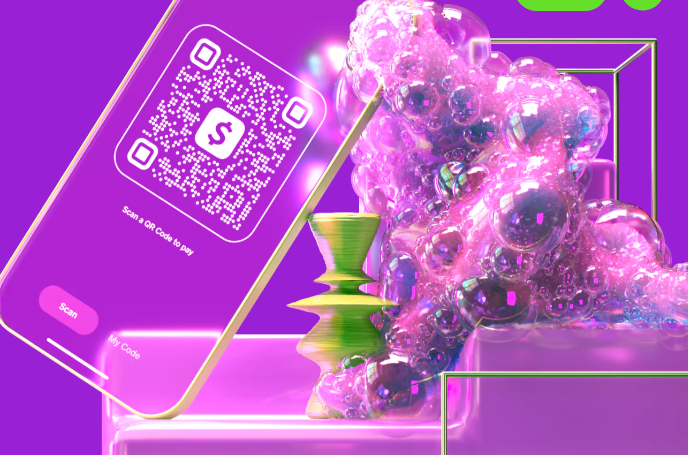A Cash App tag, or $Cashtag, is your unique identifier on the Cash App platform, enabling easy money transfers.
While convenient for legitimate transactions, it’s important to consider the implications of sharing your $Cashtag.
Possessing your $Cashtag could allow individuals to send you money or request payments, but it could also expose you to potential scams and privacy breaches.
In this article, we will be exploring what someone can do with your Cash App tag and how to protect your financial privacy and security.

What is a Cash App tag?
A Cash App tag, known as a $Cashtag, is a unique identifier for individuals and businesses using Cash App.
It serves as a personalized handle that others can use to send you money or request payments, acting like a unique username within the Cash App system.
Each $Cashtag is unique to the user and must include at least one letter and a maximum of 20 characters.
A $Cashtag provides a convenient and easy-to-remember way to receive payments without sharing personal information such as a phone number or email address.
You can choose your own $Cashtag, and it can be shared publicly, making it a simple way for friends, family, or customers to transfer money to the right person.

What Can Someone Do With Your Cash App Tag?
Your Cash App $Cashtag functions as a unique username that allows users to engage in transactions on the platform. It is linked to a public profile that displays your chosen name and $Cashtag, which can be seen by other Cash App users. This visibility is designed for convenience, allowing people to find you easily for legitimate transactions.
Here’s what someone can do with it:
- Send Money: If someone has your Cash App tag, they can easily send money to your Cash App account, which is beneficial for quick and simple transactions among friends, family, or trusted clients.
- Request Money: Someone can also use your Cash App tag to request money from you. You should always verify the identity of the requester and the legitimacy of the request before fulfilling it to avoid scams.
- Look Up Your Profile: Your $Cashtag is associated with a public-facing profile that displays your name and $Cashtag, which others can view. However, sensitive information like your bank details or transaction history remains private.
While your Cash App tag is a convenient way to transact, it’s also a potential target for scammers. They might use it to send fake payment requests or pretend to be you in phishing scams.
However, this public aspect of your $Cashtag can also be exploited by scammers. For instance:
- Impersonation Scams: Scammers could create a $Cashtag similar to yours in an attempt to deceive your contacts into sending money to the wrong account.
- Phishing Attempts: Knowing your $Cashtag may enable scammers to craft more convincing phishing messages, pretending to be Cash App support and asking for your login details or other sensitive information.
- Payment Requests: Scammers may send you payment requests with seemingly legitimate reasons, but these are often attempts to defraud you. Always confirm the identity of the requester through separate communication channels before sending money.
- Money Flipping Scams: Scammers might promise to increase your money if you send them a certain amount first. They often use social media to advertise these scams, using random $Cashtags they find, which could include yours.
To protect yourself, never share personal information with unknown parties, be skeptical of unsolicited payment requests, and enable security features like two-factor authentication on your Cash App account.
If you suspect any fraudulent activity, contact Cash App support immediately.
How Can You Protect Your Cash App Account?
It’s crucial to manage your Cash App settings and be cautious about where and with whom you share your $Cashtag.
- Set Transactions to Private: Ensure your transaction history is not public. You can change this setting in the Privacy & Security section of your Cash App.
- Be Wary of Unsolicited Payments: If you receive an unexpected payment, do not immediately assume it’s legitimate. Be cautious about refunding money, especially if the sender is pressuring you to act quickly.
- Never Share Sensitive Information: Cash App will never ask for your sign-in code, PIN, or other sensitive information like your bank account details over email, social media, or phone calls.
- Enable Security Features: Use the security features provided by Cash App, such as two-factor authentication (2FA), to add an extra layer of security to your account. This can usually be enabled in the app’s settings under ‘Security.’
- Recognize and Report Phishing: Be aware of phishing attempts. If you receive suspicious emails or messages claiming to be from Cash App, do not click on any links or provide any information. Report these to Cash App’s support team at 1 (800) 969-1940.
- Regularly Monitor Your Account: Keep an eye on your Cash App activity and immediately report any unauthorized transactions to Cash App support.
- Limit Sharing Your $Cashtag: Share your $Cashtag only with trusted individuals or entities. Be cautious about posting it on public forums or social media platforms where scammers can easily access it.
